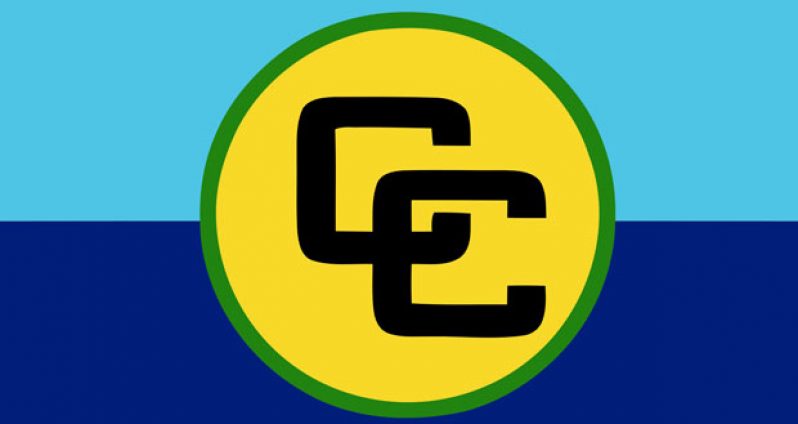IN A surprising public address in Guyana last week Mr Basdeo Panday, former Prime Minister of Trinidad and Tobago and leader of the United National Congress, made a sharp verbal swipe at the functioning of the Caribbean Community.Known to have been an enthusiastic supporter of the regional economic integration movement while in government, Panday, like then leaders of some other ruling parties—the PNM’s Patrick Manning for instance—also had to cope with criticisms for being slow, if not reluctant, to vigorously pressing for implementation of approved policies and progrmmes.
Nevertheless, he did not allow this lapse to stand in his way when he fingered weaknesses in CARICOM—foremost being, as he said, a disappointing “leadership failure.” The occasion for his public address was the annual award ceremony of the Guyana Manufacturing and Services Association (GMSA), for which he was invited to deliver the feature address.
As Panday sees it, apart from the ‘leadership failure’, deficiencies in the very structure of CARICOM as well as lack of “harmonisation of (regional) statistics were contributing factors for lingering problems affecting CARICOM’s progress.
A few days later, amid growing concerns over a growing deficit in CARICOM’s implementation of unanimously adopted decisions, Community leaders meeting in St. Vincent were to reflect a new enthusiasm to push ahead with arrangements to honour promises made.
Their collective preference to strengthen unity and cooperation was demonstrated at their two-day (March 10-11) meeting last week as reflected in comments and decisions in the official communiqué as well as statements to the media.
CARICOM Secretary General Irwin LaRocque, noted that “the sense of unity and solidarity which brought the Community together, at the best and worst of times, must now be the central force that drives it to find a route to ignite growth in our economies…” He stressed the need for unified summoning of a “clear understanding that we are all in this together…..”
It was an encouraging appeal by the Secretary General who would be quite conscious of the yawning gaps between stirring, eloquent rhetoric and lack of precise, relevant actions by the political directorate of the 15-member Community now in its 41st year of existence.
For his part, host Prime Minister and current chairman, Dr Ralph Gonsalves of St. Vincent and the Grenadines, seized the opportunity to emphasise the dangers by “perpetuating failures” to implement decisions taken in accordance with provisions of the Revised CARICOM Treaty.
Specifically, he called on his colleague Heads of Government to put “appropriate institutional arrangements in its natural executive and administrative apparatuses to facilitate the speedy and efficacious implementation of CARICOM’S decisions…”
This too was a good appeal in the spirit earlier articulated by Secretary General LaRocque. Prime Minister Gonsalves is known to be a stout, eloquent advocate for the widest and most practical forms of regional economic integration as well political unity. I assume that he would be quite disposed to sharing the modalities in the functioning of his own government’s “natural executive and administrative apparatuses” to help in speeding up “efficacious implementation of CARICOM decisions”?
Questions
For there lies the rub! What specific functioning “apparatuses”—to use PM Gonsalves’ language–are in place at the national level to facilitate “speedy and efficacious” implementation of CARICOM decisions?
For a start, there are accredited ambassadors to function, on a regular basis, with the Community Secretariat and individual member governments. Are their current work practices really helpful in enabling effective compliance of CARICOM decisions?
Is there a functioning CARICOM or department in all member governments of the Community to deal, on an ongoing basis, with issues pertaining to follow-up actions on questions and recommendations arising from Community meetings either at the level of ministers or Heads of Government? If so how are these processed in cooperation with the Guyana-based Community Secretariat?
We know that promised overall effective management at the Community Secretariat itself remains a work in progress. The long wait is said to be significant contributing factor of frustrating for all concerned, not the least being the citizens of the Community who are the ultimate losers when problems remain unresolved.
And why is it we are learning less about “new” initiatives being pursued to make a lived reality of CARICOM’s flagship project –the Single Market and Economy (CSME)?
It is not comforting to note that it was originally, and perhaps unrealistically, promised to be inaugurated back in 2008 and then postponed for five years later in 2013. The inauguration continues to be elusive amid disenchantment and cynicism.
But let’s face the reality that in today’s increasingly globalised world, there’s no alternative to enlightened regional unity and co-operation, even if this means constant variations in structures, policies and programmes.
Analysis by RICKEY SINGH
CARICOM POLITICS—AFTER ST.VINCENT HEADS MEETING
SHARE THIS ARTICLE :
Facebook
Twitter
WhatsApp



.jpg)








